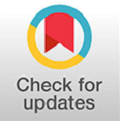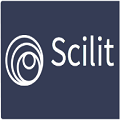Publication Ethics
- List of references should comprise all materials and data that were taken from other sources and were correctly cited in the text. Any copyrighted items (such as tables or figures) should only be reprinted with the proper authorization and with the required acknowledgement. It is important to recognise financial support received for the research study in order to disclose any potential conflicts of interest.
- Plagiarism is not acceptable in QTanalytics Journals. The manuscript's data and information should be original. There should be no fabrication, falsification, or plagiarism of data. The act of misrepresenting the words or concepts of other writers as one's own without citing their original sources is known as plagiarism. The paper could be rejected if plagiarism is found during the peer review process. After publication, if plagiarism is discovered, we may issue a notice for correction or remove the work depending on the range of similarity. QTanalytics editors use the industry standard software iTHenticate to check for similarity index.
- Authors must ensure that the manuscript is not under consideration for review or publication by any other journals. Poster or oral presentation in conference, seminars or symposium of parts of the work including a short abstract is not considered as prior publication.
AUTHOR'S RESPONSIBILITIES
- All submitted articles are subject to evaluation by reviewers who are appropriately qualified and experts in the area. Throughout the review process, authors are required to conform precisely to editorial policies. When submitting a revised version of a manuscript, a note to the editor should be submitted in discussion about all changes made to the text. Authors can also highlight the changes/actions taken in the manuscript with the red color.
- All contributors in the submitted article must give their prior consent for the submission, review, and publishing of all draughts of the text before the correspondence author may proceed.
- The manuscript's data and information should be original. Authors should keep thorough records of the data relevant to their paper and make them available upon reasonable request. The use of human or animal subjects in any study should adhere to all applicable national, municipal, and institutional laws and regulations. Authors should also indicate that, when needed, approval has been sought and received.
- Any substantial error in author’s publication should be reported to the editor within one week of publication and remain in contact with to make the necessary changes and fix the issue.
REVIEWERS’ RESPONSABILITIES
- Reviewers should help editors to improve the quality and contribute to the decision-making process, of paper. The manuscripts should be reviewed objectively in the review form available on your dashboard, in a timely manner. Editors may also decide to edit comments to maintain respect and courtesy.
- Reviewers ought to be aware of any potential vested interests (including the study, its authors, or its financiers) and notify the editor of them. If a reviewer doesn't feel qualified to evaluate the manuscript, or is not an expert of the theme of the paper, they should swiftly return it without commenting and let the editor know about any potential conflicts of interest.
- When examining the quality and relevance of the research work, the completeness of the material and technique description, and the logical interpretation of the results, reviewers should highlight any helpful ideas for modification of the paper.
- Reviewers are expected to maintain confidentiality of any information provided by the editor or author.
EDITORIAL RESPONSIBILITIES
- The Editors’ decisions to accept or reject a manuscript for publication should be based on the significance, originality, clarity, and relevance of the paper and matching the theme of the Journal. Manuscripts should be processed by editors in a scheduled framework.
- Editors should ensure that reviewers with relevant field and possess expertise capability to critically evaluating the manuscript. Editors should ensure that they have no competing interests.
- Editors should have no potential conflicts of interest with regard to the manuscript (with respect to the research, authors and/or research funders). They should avoid handling the manuscript in case of any potential conflict of interest.
- Editors should correct errors prior to publication. Incase author or any other individual inform about any errors to the editor, the editor should notify to all authors and ask for corrections to be made. The editors can publish a notice for correction or retract the article if the authors do not comply with the request in a scheduled time.
- Editors and other editorial staff members shouldn't divulge reviewers' identities before or after the manuscript is published.
PUBLISHING ETHICS ISSUES
- Editors should be receptive and collect opinion and suggestions from authors, reviewers, and editorial board members about how to enhance all facets of the journal, with a focus on publishing ethics. Editors should keep a close eye on how fairly reviewers are doing.
- Editors should consider retracting a publication if the articles found to contain any fake data and information or the results have been published elsewhere without the required reference, authorization, or justification.
- Editors should ensure that all procedures and rules are duly followed and maintain high standards of publications. They are responsible for the integrity of all manuscripts published in the journal. Sponsors of the funding shall not impede the publishing of the study's findings. Researchers shouldn't sign contracts that allow the funding source to control how the findings are published.
- Author must inform about any significant error in the publication and should inform the journal editor as soon as possible. When a error or inaccuracy has been identified in a published publication, authors should work with the editor as soon as possible to publish retractions, clarifications, retractions, and apologies—or, if necessary, to retract the manuscript altogether.
- If an editor suspects or informed any kind of misconduct, they have a responsibility to act. Both published and unpublished studies are subject to this obligation. Editors shouldn't just dismiss manuscripts that raise questions about possible misbehaviour. They must investigate suspected situations out of moral obligation. Editors must exert all reasonable efforts to ensure that an appropriate inquiry into any allegations of misbehaviour is carried out; if that doesn't happen, editors must exert all reasonable efforts to find a solution to the issue.
CORRECTIONS AND RETRACTIONS
QTanalytics Publishing (QTanyt) provides updates, retractions, and statements of concern as soon as is appropriate. We follow the COPE guidelines where applicable.
APPEALS or COMPLAINTS
Authors have the option to challenge a manuscript rejection. Rather than being motivated by issues with the procedure, appeals should focus on the scientific merit of the article and its eligibility for publication. Authors should email the Journal Editor if they want to appeal a rejection. Author can email the Journal Editor if they want to appeal a rejection at journals@qtanalytics.in. The Editor’s decision on the appeal is final.
Authors wishing to make a complaint should contact the publisher by email (support@qtanalytics.in).






 journals@qtanalytics.in, support@qtanalytics.in | Phone: +91-9458270556
journals@qtanalytics.in, support@qtanalytics.in | Phone: +91-9458270556
